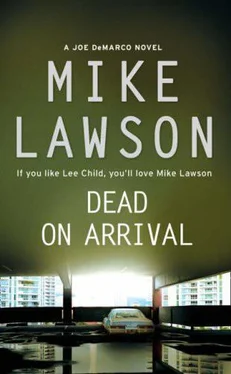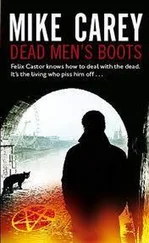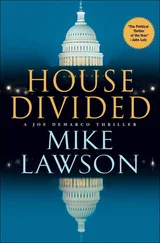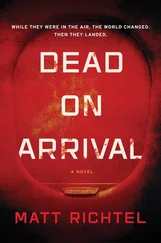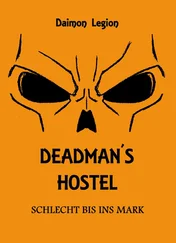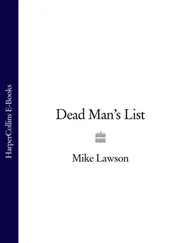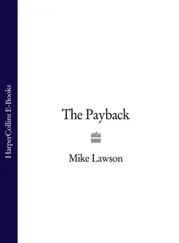Mike Lawson - Dead on Arrival
Здесь есть возможность читать онлайн «Mike Lawson - Dead on Arrival» — ознакомительный отрывок электронной книги совершенно бесплатно, а после прочтения отрывка купить полную версию. В некоторых случаях можно слушать аудио, скачать через торрент в формате fb2 и присутствует краткое содержание. Жанр: Триллер, на английском языке. Описание произведения, (предисловие) а так же отзывы посетителей доступны на портале библиотеки ЛибКат.
- Название:Dead on Arrival
- Автор:
- Жанр:
- Год:неизвестен
- ISBN:нет данных
- Рейтинг книги:5 / 5. Голосов: 1
-
Избранное:Добавить в избранное
- Отзывы:
-
Ваша оценка:
- 100
- 1
- 2
- 3
- 4
- 5
Dead on Arrival: краткое содержание, описание и аннотация
Предлагаем к чтению аннотацию, описание, краткое содержание или предисловие (зависит от того, что написал сам автор книги «Dead on Arrival»). Если вы не нашли необходимую информацию о книге — напишите в комментариях, мы постараемся отыскать её.
Dead on Arrival — читать онлайн ознакомительный отрывок
Ниже представлен текст книги, разбитый по страницам. Система сохранения места последней прочитанной страницы, позволяет с удобством читать онлайн бесплатно книгу «Dead on Arrival», без необходимости каждый раз заново искать на чём Вы остановились. Поставьте закладку, и сможете в любой момент перейти на страницу, на которой закончили чтение.
Интервал:
Закладка:
Bailey Flynn was one of these secret donors. Flynn represented several businessmen like himself who operated clubs where young girls danced barely clothed or not clothed at all. Mahoney, a true believer in the arts and the First Amendment, felt that these businessmen had a right to representation; he just preferred that places like Chucky’s All Nude Revue not be prominently listed among his supporters. And although its mission was certainly loftier than Bailey Flynn’s, the archdiocese of Boston also could not afford to be identified as a Mahoney booster. The Church’s tax-exempt status might come into jeopardy if it were seen to be emptying its collection plates directly into the speaker’s pockets.
And thus DeMarco’s reason for going to Boston: to meet those who directed the dancers and those who directed the choir — and take from them envelopes that he never, ever, looked into.
DeMarco dispatched Bailey Flynn in short order. He stopped at a club in Revere, took a seat, and ordered a Coke; he needed to keep his alcohol level on empty before meeting with Father Mike. A few minutes later Flynn joined him. Flynn was sixty, tall and perpetually morose, as if he spent his days embalming bodies. While Flynn told DeMarco that ‘those blue-nosed sons-a-bitches have ruined the Combat Zone in Boston, and Mahoney goddamn well better put a stop to that shit before the same thing happens everywhere else,’ DeMarco watched a girl with tassels on her nipples dance with as much enthusiasm as people display on their way to the dentist. Five minutes later he was on his way.
The thing about Jesuits, DeMarco knew from ex perience, was that they weren’t necessarily smarter than you but they were certainly better educated. Not only did these men go to college and spend several years in a seminary learning the priestly arts, they almost invariably had doctorates in more than one subject. And Father Michael Thomas Kelly was not only better educated than DeMarco, he was also smarter, but as he never made a point of this, there was no other man on the planet that DeMarco enjoyed dining with more.
DeMarco had never seen the priest in a Roman collar. Tonight he was dressed in a soft tan jacket made of something that looked like suede, a brown silk T-shirt that showed off his physique, and dark brown slacks that fit him perfectly. With the possible exception of Joe’s cousin Danny, Father Mike was probably the handsomest man that DeMarco knew. If he ever tired of being a cleric, he could make his fortune as a middle-aged model.
Although Father Mike never discussed his job, DeMarco had always suspected that the priest did for Cardinal Mackey what DeMarco did for Mahoney. If the Church had some sticky problem — and it had had more than its share of late — and if the problem couldn’t be handled through normal channels, Father Mike would be dispatched. DeMarco also suspected that beneath the thick layers of charm and wit and blarney there was a hard side to the priest that came out when called for.
Dinner began as it usually did with Father Mike: martinis, more than one. From there they proceeded to a bottle of white wine, followed by a bottle of red, followed by a snifter of cognac that was old and smooth and absurdly expensive. And between the martinis and the cognac they ate a meal that should have been added to the list of deadly sins.
During dinner, Father Mike talked. He talked about everything: sports, movies, books, and, of course, politics. His speech was filled with quotes from famous dead people and anecdotes about famous living ones, all of whom it seemed he’d met — the living ones, that is. And he was so skilled at the art of conversation that he made DeMarco feel as though he was actually contributing, though the reality was that DeMarco hardly spoke at all and didn’t mind that he didn’t.
At one point, DeMarco noticed a gorgeous woman in her thirties smile at Father Mike and he smiled back, a smile that almost certainly made the lady tingle all way down to her toes. DeMarco had no evidence whatsoever that Father Mike didn’t strictly adhere to his vow of celibacy; oddly enough, he believed sincerely that he did. But how he managed to do so the way women threw themselves at him, DeMarco couldn’t fathom.
Three hours after the dinner commenced, Father Mike drove DeMarco to a hotel near Logan Airport, stuffed an envelope into the breast pocket of his suit, and then mumbled something as he made a shoofly gesture in the air with his right hand. DeMarco suspected that he’d just been blessed — that a Jesuit had just asked God to keep a completely inebriated man from doing harm to himself as he staggered toward his bed.
34
They would have to alter the plan, but just slightly.
After two nights, he understood the pattern of the guards. One man, who appeared younger than the other two, left the guard shack at 11 P.M., 2 A.M., and 5 A.M. and patrolled for an hour. He patrolled erratically, never following a set pattern, but he tended to stay in areas that were well lit. The second guard began his patrols at midnight and 3 A.M. He would leave the guard shack and go to a small building fifty yards away, a building that looked like some sort of storage shed, and he would stay inside the shed for an hour and then return to the guard shack. The third guard, the one who had seen the boy, patroled at 1 A.M. and 4 A.M., and he either went to the spot at the southeastern corner of the refinery, where he sat and smoked and drank from a small flask, or he went inside the same maintenance shack where the second guard hid.
So the boy would enter the plant as soon as the first guard, the diligent one, returned to the guard shack. That would give him two hours in which to set the devices — twice as long as he needed. To enter the facility, the boy would dig a small hole under the fence. The ground was soft and the boy was small so it wouldn’t take long. Because the third guard, the man with the flask, sometimes sat close to the entry point that they had originally selected, the boy would move the entry point fifty yards up the fence line to a spot that was almost as good. After the boy had installed the devices, he would exit by the same hole. If he had time he would fill in the hole with dirt, and if he didn’t have time he’d place a piece of cardboard over the hole. The area around the facility was littered with debris; a piece of cardboard lying on the ground near the fence would not be noticed by anyone.
After the devices had been planted, the boy would wait near the refinery. He wouldn’t even need to hide; he would sit in the dark until sunrise, and when it was light out he’d just walk about innocently, a boy on his way to wherever boys go. Then at seven-thirty — when the day-shift workers began to stream into the facility, when the children were on their way to school, when the nearby buildings began to fill up with people, when the roads were crowded with cars — the boy would walk up to the main gate of the plant, declare his love for God, and detonate the bombs.
35
It was a hassle for Oliver Lincoln to contact the client, but to contact the Cuban all he had to do was go to a restaurant in Miami and have a nice dinner. The restaurant was very popular and very expensive, and the Cuban owned it.
She sat down with him after he had finished his dinner. He knew, in spite of all the business he’d given her over the years, that she’d charge him for the meal. She was, he was convinced, the most miserly person he’d ever known. She made a good income off the restaurant and an even better income from her other job, but she lived in a fifteen-hundred-square-foot home in a middle-class neighborhood in Miami; she wore off-the-rack clothes; and she drove one of those homely hybrids that got about fifty miles to the gallon. Lincoln suspected that the woman had millions stashed away in a bank in the Cayman Islands — or buried in a can in her backyard — but he had no idea what she was saving the money for. Lincoln couldn’t retire because he had such expensive tastes. The Cuban, on the other hand, could have retired years ago had she wanted to, but she didn’t. She loved money — not the things money could buy. Oliver Lincoln simply couldn’t relate to people like her.
Читать дальшеИнтервал:
Закладка:
Похожие книги на «Dead on Arrival»
Представляем Вашему вниманию похожие книги на «Dead on Arrival» списком для выбора. Мы отобрали схожую по названию и смыслу литературу в надежде предоставить читателям больше вариантов отыскать новые, интересные, ещё непрочитанные произведения.
Обсуждение, отзывы о книге «Dead on Arrival» и просто собственные мнения читателей. Оставьте ваши комментарии, напишите, что Вы думаете о произведении, его смысле или главных героях. Укажите что конкретно понравилось, а что нет, и почему Вы так считаете.
